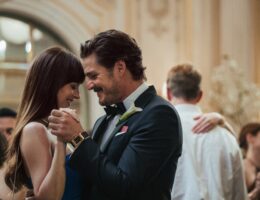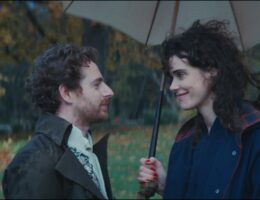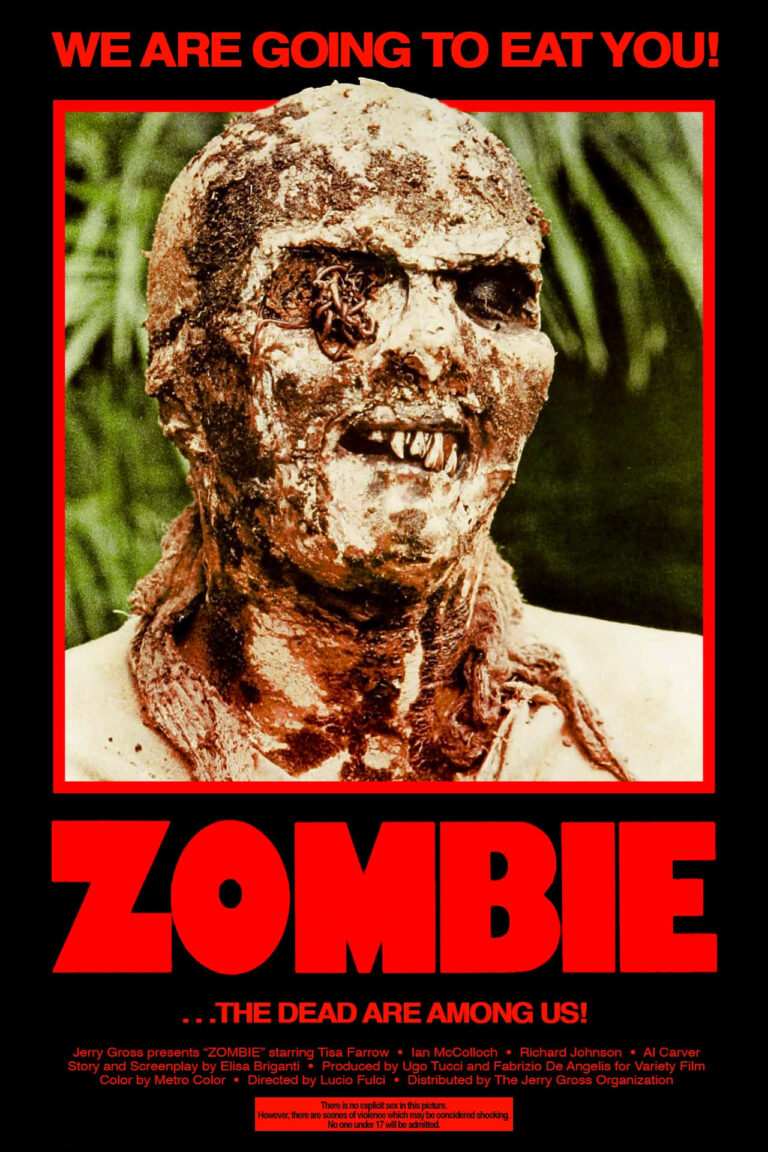Italian horror cinema from the ‘70s and ‘80s has amassed a fervent cult over the last four decades, and one of the big lures for that following lies in the soundtracks crafted for those movies.
Sadly, most of the composers of those indelible scores have shuffled off this mortal coil. So when one of those one of those surviving tunesmiths comes to town to play live—accompanying a screening of a legit horror classic, no less—it’s a rarity worth savoring.
One such rarity rears its head this Sunday at Substation in Ballard, as composer Fabio Frizzi and his band live-accompany a screening of Lucio Fulci’s 1979 undead classic, Zombie. Frizzi’s played Seattle a couple of times over the last decade, but never backing up the screening of one of his feature films. Given the man’s gifts as a multi-instrumentalist, and the very tight ensemble playing alongside him, Sunday should be something special.
Frizzi began plying his trade as a film composer back in the late ‘60s, paying dues composing for spaghetti westerns, crime flicks, and softcore erotica for almost a decade before director Lucio Fulci hired him in 1975 to score the underrated but pretty terrific Italian western, Four of the Apocalypse. It led to an incredibly fruitful collaboration over nine films.
The director/composer team-up reached its zenith with Fulci’s horror efforts, beginning in 1977 with The Psychic (AKA Seven Notes in Black).Sharp-eared fans of Quentin Tarantino will likely recognize The Psychic’s theme music from its inclusion in Kill Bill Volume 1, but Zombie stands tall as en even more memorable and effective score (Frizzi shared composer credit on Zombie with Giorgio Tucci).
Italian distributors sold Zombie as an implied sequel to George Romero’s influential shocker, Dawn of the Dead, by christening Fulci’s film Zombi 2 (Dawn’s European AKA was Zombi). But to its credit, the Italian gore auteur’s first foray into zombiedom stakes out its own identity quickly. A deserted sailboat drifts into a New York coastal harbor, leading Ann (Tisa Farrow)—the daughter of the boat’s missing owner—to travel to an uncharted island in the Antilles with a stalwart English reporter (Ian McCulloch) to try to find her father.
The bulk of the film unwinds on that island, as the dead rise and begin devouring the living. Dr. Menard (Richard Johnson), the sole scientist living there, labors to fend off a zombie plague that he may or may not have helped to induce. The heroes discover that walking corpses can only be taken out by a bullet to the head. Guts are munched by the barrel. And you can forget about a happy ending.
It’s easy to dismiss Zombie as grindhouse sleaze, and indeed, it hurls sensationalism by the shovel at its viewers (this may be the only film in cinema history to wedge a great white shark, a gut-munching zombie, and a topless lady skin diver into the same scene). Look beyond its gleefully ragged Coat of B-Movie Colors, though, and some real (dare I say it?) artistry surfaces from the mayhem.
An atmosphere of utter despair clings to the early island scenes like rough sand on wet skin—Fulci deliberately denies his audience even a tiny ray of the humor Romero injected into Dawn. The numbing dread with which Johnson (excellent here) fights the zombie plague, armed with pitiful resources amidst a dilapidated backdrop of shanty shacks and sickly poor, feels palpable. As envisioned by cinematographer Sergio Salvati, this sand-blasted ghost town of an island village is light-years removed from George Romero’s bloodstained but shiny consumer Mecca. And Fulci mounts his monstrous money shots with such suspenseful grace he almost doesn’t need to slather on the hemoglobin and entrails.
But slather, he does. Zombie rolls out some of the Italian maestro’s most show-stopping setpieces of splatter, including an incident of ocular violence that imprints itself on the brain as much for its excruciating build-up as for its “Dear God, did they just SHOW THAT?!” blunt-force impact.
The score by Frizzi and Tucci is deployed effectively throughout. The title theme begins with menacing horror movie keyboard notes, before a syncopated synth melody builds in near prog-rock fashion—a trick that imbues the movie with a sense of the epic. An outright jaunty Caribbean track frolics ridiculously through several minutes, until it’s warped and infected by eerie electronics. Distant surges of distorted fuzz guitar feedback and equally distorted synthesizers are periodically burst open by ostensibly silly but somehow bone-chilling guttural roars.
Lucio Fulci’s unrepentantly, luridly creepy visual delivery has always played like gangbusters on a big screen. And with Fabio Frizzi and band providing live backup, expect the kind of compulsive, disorienting, and propulsive instrumental backdrop from which nightmares are made.
Tickets to Fabio Frizzi performing Zombie – The Composer’s Cut on Sunday September 22 can be purchased here.




